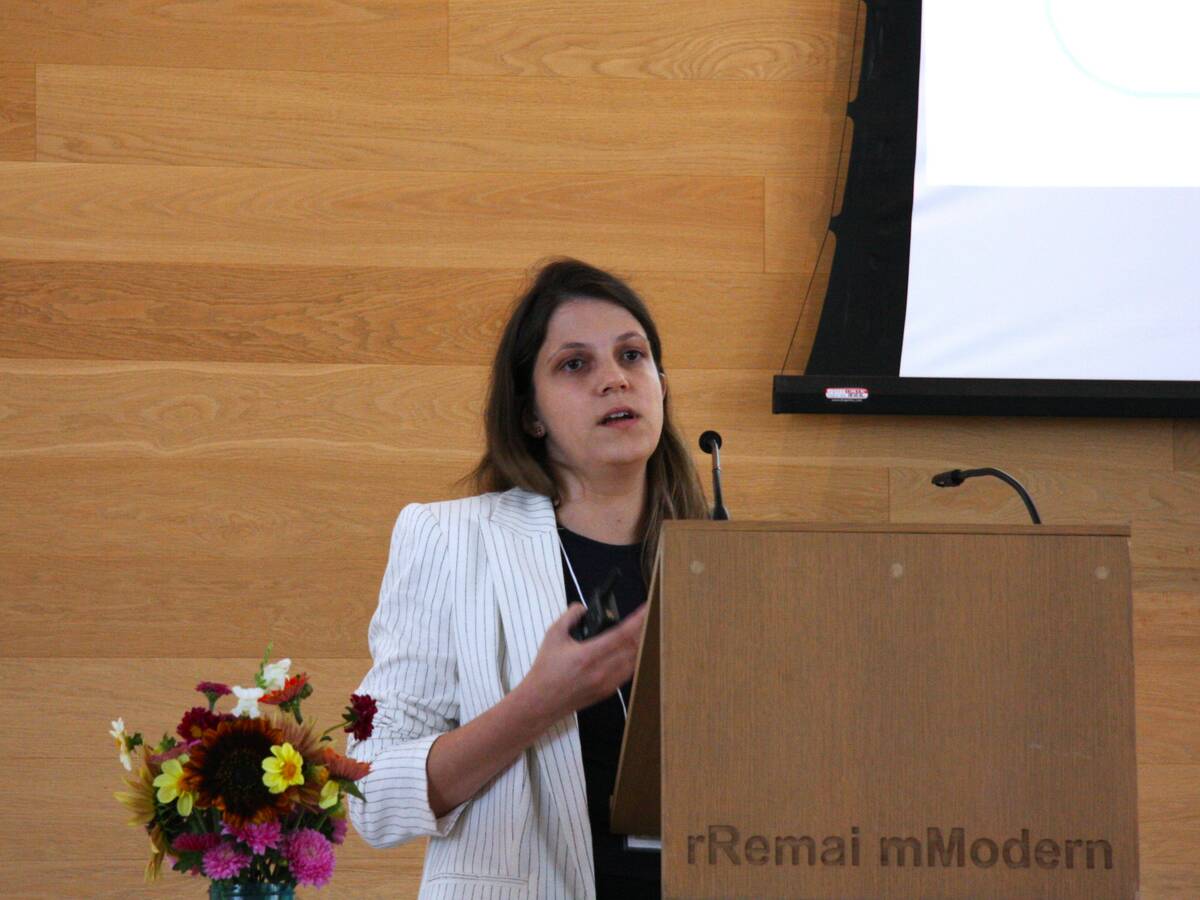LINDELL BEACH, B.C. — Goat kids raised in their social groups develop specific accents to sound more like one another, according to research conducted at the Queen Mary University of London, U.K.
It was previously thought that vocalization in mammals was fixed according to their genetic heritage with little inclination or ability to change the vocalizations in response to social or environmental influences. Humans are exceptions.
But researchers found a form of vocal learning, in which animals copy each other’s sounds and, over time, begin to sound similar to each other.
Read Also

Fusarium head blight mycotoxin detector in the works
A PhD student at the University of Saskatchewan has been working on developing a method of detecting fusarium damaged kernels to ease the struggles of producers, agronomists and industry.
“We found that half-siblings raised in the same group were developing more similar vocalizations than half-siblings raised in a different group, so more similar ‘accents’, said Dr. Elodie Briefer with the University’s Biological and Experimental Psychology Group in the School of Biological and Chemical Sciences.
This is really surprising, because mammals such as goats were not expected to have any flexibility in their vocalizations, said Briefer.
The ability to change vocalization, alter the sound of the voice to mimic or copy others, and form accents is called vocal plasticity. The research is the first to show such flexibility in vocalizations in ungulates (hoofed mammals).
The study called Social Effects on Vocal Ontogeny in an Ungulate, the Goat, was published earlier this year in Animal Behaviour.
Briefer said the results show that goat kids form strong bonds with other kids of the same age, so ideally, they should be left with their mother and mates until weaned.
“It also shows that these animals have more cognitive abilities than previously believed and they should be treated accordingly,” she said.
The team studied four groups of pygmy goat kids born in July and December 2009 and March and July 2010. There were a total of 23 kids, five females and 18 males and none was transferred between the groups. The animals were raised indoors and the males were castrated according to standard goat husbandry in the United Kingdom.
The goats all had the same father, so they were either full or half siblings. This made relationships comparatively uniform, making it easier to study variations in sounds.
The goats were all on the same farm, so environmental conditions were identical and researchers took into account individual body size and other anomalies.
The kids’ calls were recorded at one week and at five weeks of age. The timing was critical and reflected different ecological and social conditions in the early natural stages of a kid’s natural development
During their first few weeks of life in the wild, kids have an instinct to avoid predators. Rather than calling, they conceal themselves in vegetation either alone or with others.
But at five weeks, they start to socialize with kids of their own age.
“We studied goats in domestic settings which, contrary to what would have happened in the wild, kids were spending time with other goat kids from their group from an early age, even before five weeks,” said Briefer.
“Their adjustment to other kids’ calls was therefore probably gradual.
“However, in the wild, because they stay away from the group until five weeks on average, they must pick up the sound of their group mates after they join the group. This could happen quite quickly.”
Briefer wrote in the report that, contrary to prevailing views, the calls of kids raised in the same social group were more similar than the calls of kids from different groups, indicating that kids are able to modify their calls in response to their social environment even at one week of age. The ability to alter their calls was stronger at five weeks of age.
They also found that at one week, full-sibling calls were no more similar than half-sibling calls. However, at five weeks, full sibling calls became more similar than half-sibling calls.
While this could be caused by a genetically inherited physical function of the vocal apparatus, the group effect the researchers recorded was attributed to the social environment.
The next step in the research will be to see how see how fast kids can change their calls to adapt to the accent of other kids around them.
“I would guess that, if they come to a new group and bond with the new group mates, they should change their calls quite quickly,” said Briefer.
She said in her report that the results support the controversial evidence that social context plays a role in shaping vocal communication systems.














